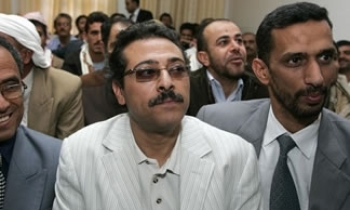A court in the western city of Ural ordered on April 21 a local newspaper, Uralskaya Nedela (Ural Week) and one of its reporters, Lukpan Akhmedyarov, to pay 20 million tenges (136,000 dollars) in damages to an oil industry company, especially as the size of the award could force the weekly to close, according to Reporters sans Frontières (RSF).
In an article headlined “Hidden invitations to tender” that was published on August 6, 2009, Akhmedyarov criticised the fact that the company Tengizneftestoy seemed to be so sure of winning a contract that it began assembling equipment and workers before companies had been asked to submit bids.
Tengizneftestoy acknowledged during the trial that it had acted as Akhmedyarov claimed but nonetheless insisted it had been defamed by the article.
RSF expressed shock at the size of the damages, even if less that the amount demanded by the company. The court was clearly aware that it would have the almost certain effect of bankrupting the newspaper. RSF believes the aim was to silence it for good.
An administrative court in the southern city of Almaty meanwhile fined Guljan Ergalyeva, the editor of newspaper Svoboda Slova (Free Expression), 250 dollars on April 23 for depositing flowers at the independence monument in the city’s main square and for talking about the importance of freedom of expression and assembly during a banned demonstration on April 17 by the opposition party Azat after its congress. The court accused her of organising the demonstration. RSF regarded the fine as disproportionate.
Two members of the “For a free Internet” movement appeared in court on April 23 for participating in a “flash-mob” protest against the telecommunications company Kazakhtelecom, which blocks access to websites without having the authority to take such action. Irina Mednikova got a warning while Zhanna Baytelovoy, the alleged organiser, was fined under article 373 of the administrative code.
RSF urged the Kazakh judicial authorities to overturn all of these rulings. As holder of the Organisation for Security and Cooperation in Europe’s (OSCE) rotating presidency, Kazakhstan should make an effort to bring its legislation and judicial practices into line with international standards.









